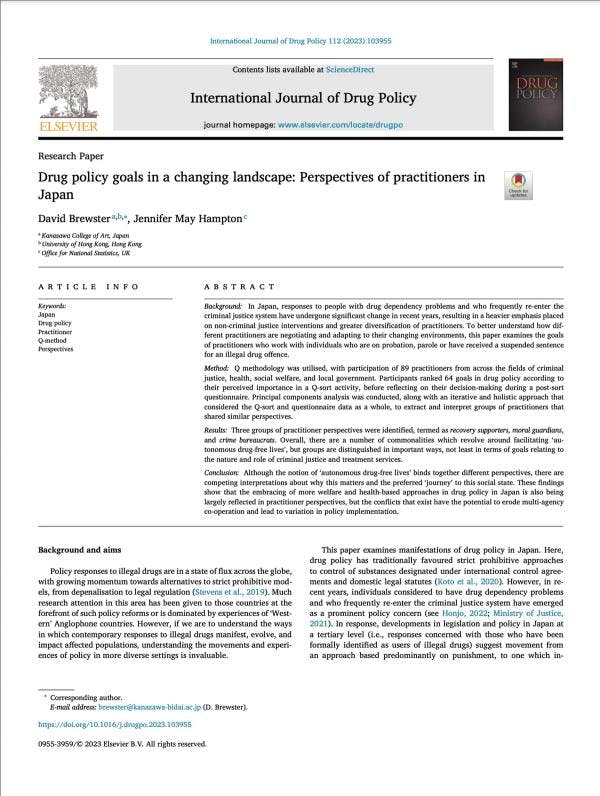Objetivos de políticas sobre drogas en un panorama cambiante: Perspectivas de los profesionales en Japón
Brewston y Hampton trazan un mapa de las interpretaciones de profesionales en los servicios referidos a drogas respecto a los objetivos de las políticas sobre estas sustancias, resaltando los cambios suscitados, de perspectivas puramente represivas a otras orientadas a la salud y el bienestar. Más información, en inglés, está disponible abajo.
In Japan, responses to people with drug dependency problems and who frequently re-enter the criminal justice system have undergone significant change in recent years, resulting in a heavier emphasis placed on non-criminal justice interventions and greater diversification of practitioners. To better understand how different practitioners are negotiating and adapting to their changing environments, this paper examines the goals of practitioners who work with individuals who are on probation, parole or have received a suspended sentence for an illegal drug offence.
Q methodology was utilised, with participation of 89 practitioners from across the fields of criminal justice, health, social welfare, and local government. Participants ranked 64 goals in drug policy according to their perceived importance in a Q-sort activity, before reflecting on their decision-making during a post-sort questionnaire. Principal components analysis was conducted, along with an iterative and holistic approach that considered the Q-sort and questionnaire data as a whole, to extract and interpret groups of practitioners that shared similar perspectives.
Three groups of practitioner perspectives were identified, termed as recovery supporters, moral guardians, and crime bureaucrats. Overall, there are a number of commonalities which revolve around facilitating ‘autonomous drug-free lives’, but groups are distinguished in important ways, not least in terms of goals relating to the nature and role of criminal justice and treatment services.
Although the notion of ‘autonomous drug-free lives’ binds together different perspectives, there are competing interpretations about why this matters and the preferred ‘journey’ to this social state. These findings show that the embracing of more welfare and health-based approaches in drug policy in Japan is also being largely reflected in practitioner perspectives, but the conflicts that exist have the potential to erode multi-agency co-operation and lead to variation in policy implementation.
Descargas
Regiones
Perfiles relacionados
- International Journal of Drug Policy
